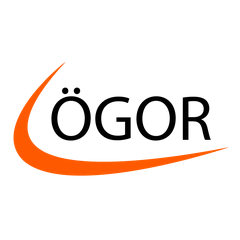15. – 18. Juli 2019: TSL Workshop 2019 – Transportation in the Sharing Economy, Universität Wien
Monat: November 2018
ÖGOR Jahrestagung und 40 Jahrfeier
Wir erlauben uns, nochmals an die Jahrestagung und 40 Jahrfeier der ÖGOR am 23. 10. ab 13:00 im Clubraum des Libray and Learning Centers der Wirtschaftsuniversität Wien zu erinnern. Es ist nach wie vor möglich, sich anzumelden, bzw. Meldungen zu ändern. Die Generalversammlung der ÖGOR findet ab 9:30 am selben Ort statt.
Wir werden uns an die Geschichte der ÖGOR erinnern, die Hauptvorträge werden aber auch wichtigen Zukunftsthemen gewidmet sein.
Richard Eglese (Lancaster University): Looking back and looking ahead
Abstract: Fifty years ago, there were some big differences in the world compared to the present day. The talk will present a personal reflection on some of those differences and the developments that have occurred in Operational Research over that period, with particular reference to vehicle routing and green logistics. There will be some speculation on how recent and future developments in the way we live will provide opportunities for new Operational Research models and solution approaches, especially considering sustainable approaches to freight transport.
Luis Baringo Morales (Universidad de Castilla – La mancha): Decision making under uncertainty in power systems via stochastic programming and robust optimization
Abstract: Most relevant decisions to be made in power systems involve a significant level of uncertainty. To make informed decisions within such a context, it is essential to model properly the nature of the uncertainty and its impact on power systems. In this sense, stochastic programming and robust optimization provide appropriate mathematical modeling frameworks to characterize the uncertainty and to derive informed decisions. We analyze the pros and cons of both techniques and illustrate how a combination of these two methods can be used to solve relevant planning and operation problems in power systems.
Walter Gutjahr (Universität Wien): Finding Fair Solutions: Challenges in Inequity-Averse Optimization
Abstract: The Operations Research literature has recognized early that decision making in the public or non-profit sector – and to some extent also in other fields of management – frequently faces the issues of equity and fairness. In famous game-theoretic experiments, empirical evidence has been obtained for the high importance that humans attribute to solutions they consider as “fair”. OR experts have started to investigate tradeoffs between efficiency and equity, determining the “price of fairness”. The fairness aspect has created a broad strand of literature in healthcare management, but also in other areas, as staff scheduling, facility location, transportation logistics, environment, or humanitarian operations, issues of equity or balance arise. The talk starts with a short survey on past and present of inequity-averse optimization and its roots in decision theory, behavioral economics, theory of justice, and, of course, Operations Research. Inequity measures and their treatment within optimization models are discussed. After that, a topic with particular relevance for future research is addressed, namely inequity-averse optimization under (probabilistically modeled) uncertainty. Very little work has been done up to now on this topic in the applied OR literature, and also in available decision-theoretical publications, it is considered as not yet fully clarified. The talk will discuss a combination of two very different options: (i) to minimize expected inequity, (ii) to minimize the inequity of expectations. For illustration, a stochastic programming model for a disaster preparedness application with data from Turkey will be used.
Zudem findet auch die Verleihung der diesjährigen ÖGOR-Preise statt. Der Abend schließt mit einem Buffet und gemütlichem Beisammensein, wir freuen uns besonders, dass Repräsentanten der OR-Gesellschaften aus allen Nachbarstaaten ihr Kommen zugesagt haben.
